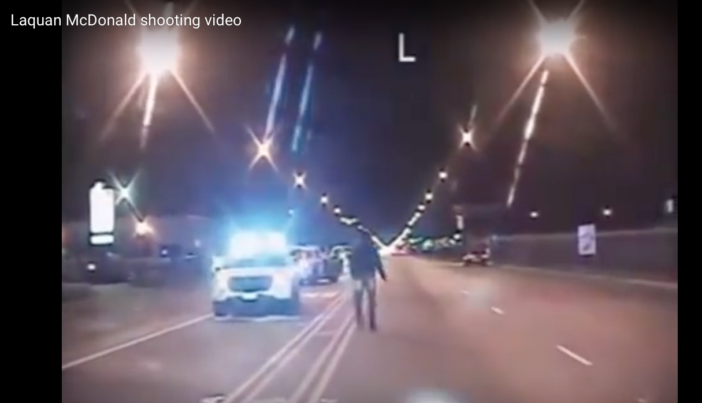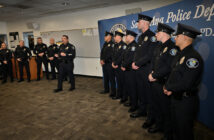On Oct. 5, 2018, a jury found Chicago Police Officer Jason Van Dyke guilty of second-degree murder and aggravated battery for the 2014 shooting of Laquan McDonald. Van Dyke faces up to 20 years in prison. Sentencing is scheduled for later this month.
On Oct. 14, 2018, McDonald was running down the street with a knife in his hand acting erratically as officers attempted to contain him. At one point, he slashed the tires of a police vehicle. Van Dyke pulled up next to McDonald as he walked down the street. At one point, he opens fire and strikes McDonald, who falls to the ground. Van Dyke proceeds to fire 16 shots at him during the next 13 seconds. No other officers fired their weapons.
This is the first time a Chicago police officer has been convicted of murder in a city that has struggled with community relations and high crime rates for decades.
There are several important issues the case brought forward. One was the nearly yearlong delay in the release of the police video. This added fuel to a perception of “what have they got to hide” from the public. Many jurisdictions around the country have adopted policies of releasing police footage of officer-involved shootings within certain time frames.
Additionally, three officers are awaiting trial for allegedly falsifying reports to back up Van Dyke’s perceptions of the event. According to prosecutors, officers “failed to report or correct false information in official police reports.” The officers’ statements alleged McDonald lunged at Van Dyke with a knife. A dashcam video did not show McDonald lunging at Van Dyke. Another allegation is eyewitnesses were not interviewed.
A United States Department of Justice investigation was launched and in January 2017, a highly critical report found the department had a culture of excessive violence and lacked relevant training. The department is now operating under a court-ordered consent decree to institute reform.
It’s not up to me to determine Van Dyke’s guilt or innocence. A jury, after hearing days of testimony, has done that. Some officers from the get-go felt it was a “bad shooting.” Others felt McDonald was a real and immediate threat to due to his mental state and the fact he was armed with a knife.
I can say my initial reaction to the shooting was, “What was he thinking?” The taking of a life is subject to the greatest scrutiny, and I’ve always felt some officer-involved shootings are best left to a jury to decide. “What was he thinking?” became the primary issue with defense attorneys and, ultimately, the jury.
The second-degree conviction reflected a belief the officer feared for his life, but according to the jury the fear was unreasonable. The aggravated battery convictions were for the shots fired by Van Dyke — each believed to be unnecessary.
Policing is probably the most difficult job a person can undertake. A police officer is given the responsibility of making life-or-death decisions in split seconds and the public expectation is they do it without error. In response, agencies provide hundreds if not thousands of hours of training to help officers when those decisions have to be made.
For the most part, the training, experience and education work. Disturbed people are contacted and taken for evaluation by the hundreds every day. Armed suspects are encountered and arrested without resorting to deadly force by the thousands. Officers routinely deescalate potential deadly force incidents as a matter of practice in just about every jurisdiction.
A just-published Department of Justice report estimates there were 53.5 million contacts with the police in 2015. In the same year, 1,092 people died at the hands of police. In most of these cases, suspects were armed. If nothing else, the data shows something is really working. But data means little to a community reacting emotionally.
Police departments need to get better at transparency and to up the already high standards for training. There also need to be constructive efforts at connecting with communities and educating them to the decision-making challenges police officers face every day.
Joe Vargas is a retired police captain. You can reach him at jvargas@behindthebadgeoc.com
 Behind the Badge
Behind the Badge



